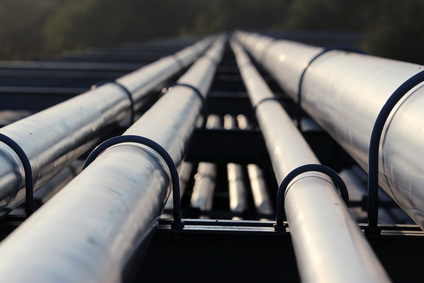Pipeline Stimulus

From Vancouver to the Atlantic provinces, Canada is criss-crossed by 73,000 kilometers of oil and gas pipelines under the supervision of the National Energy Board, enough to circle the Earth almost twice. Clearly, Canadians have some expertise in the field.
At first blush, one can be baffled by the opposition that has greeted the four projects currently being studied, all at different stages: Energy East, Northern Gateway, Trans Mountain, and Keystone XL. But this is not so surprising considering that these projects cross thousands of municipalities and aboriginal communities.
It would be misleading, however, to consider only the costs and benefits at the local level. Indeed, no community crossed by a pipeline, other than those where there are refineries that benefit from this supply, will see any substantial economic spinoffs once the construction phase is completed. Nevertheless, this in no way prevents such large projects from being economically positive from a pan-Canadian perspective.
In all, these pipeline projects represent substantial investments totalling $34 billion, excluding the Keystone XL project located largely in the United States. The main benefit of pipelines is the opening up of access to the global market for oil from the Prairies, allowing producers to obtain a higher price than they currently do.
As long as the United States is the only export market for Canadian oil, this sector is dependent on a market that is itself producing more and more oil. The price differential for a barrel of oil on the internal American market versus on the world market implies a loss of revenues for governments, as well as a loss for the Canadian economy that can be estimated at $13.5 billion.
While these pipeline projects face numerous hurdles, the federal government has decided to run a deficit of some $30 billion in the hope of stimulating the economy. In fact, only a tiny part of this amount ($3.97 billion) is earmarked for new infrastructure spending. But the important point when comparing public to private investment projects rests not on the amounts at play, but rather on their economic impact, which differs markedly for four main reasons.
First, the creation of value is the whole purpose of private investment. Public investment, on the other hand, is mostly aimed at fulfilling promises of job creation, and its purpose is first and foremost political.
Second, public infrastructure investment projects regularly run into difficulties, such as cost overruns and delays. This kind of risk is implicitly guaranteed by taxpayers.
Third, public infrastructure is funded either by raising Canadians’ tax burden or by growing the public debt that is ultimately supported by taxpayers. In contrast, private investment does not require tax money since private companies run the projects with their own funds. And the economic activity generated by this private investment will even contribute to governments’ tax revenue.
Fourth, empirical results from the United States show that, after 10 years, economic stimulus has no permanent effect on productivity. In contrast, when the government competes less with the private sector in the recruitment of workers and the use of capital, private investment takes over. Indeed, economic research shows that public spending cuts have positive effects on economic growth, as shown in a study of Canada in the 1990s carried out by renowned Harvard economist Alberto Alesina and two of his colleagues.
Private investment is therefore clearly preferable to public spending when it comes to stimulating the economy. Pipeline projects, in particular, represent substantial economic benefits when considered from a Canadian perspective, and not solely in terms of local spinoffs.
Justin Trudeau has acknowledged that pipelines represent the safest way of transporting oil, and has said that ensuring market access for Canadian resources is one of the most important duties of a prime minister. Intelligent regulation with delays that are predictable and clear definitions of federal, provincial, and municipal jurisdiction would go a long way toward removing uncertainty from beneficial private investments like pipeline projects.
L'honorable Joe Oliver est Senior Fellow émérite à l'IEDM, Youri Chassin est économiste et directeur de la recherche à l'IEDM. Ils sont co-auteurs de Comment stimuler l’économie le plus efficacement : oléoducs privés ou infrastructures publiques? et signent ce texte à titre personnel.

